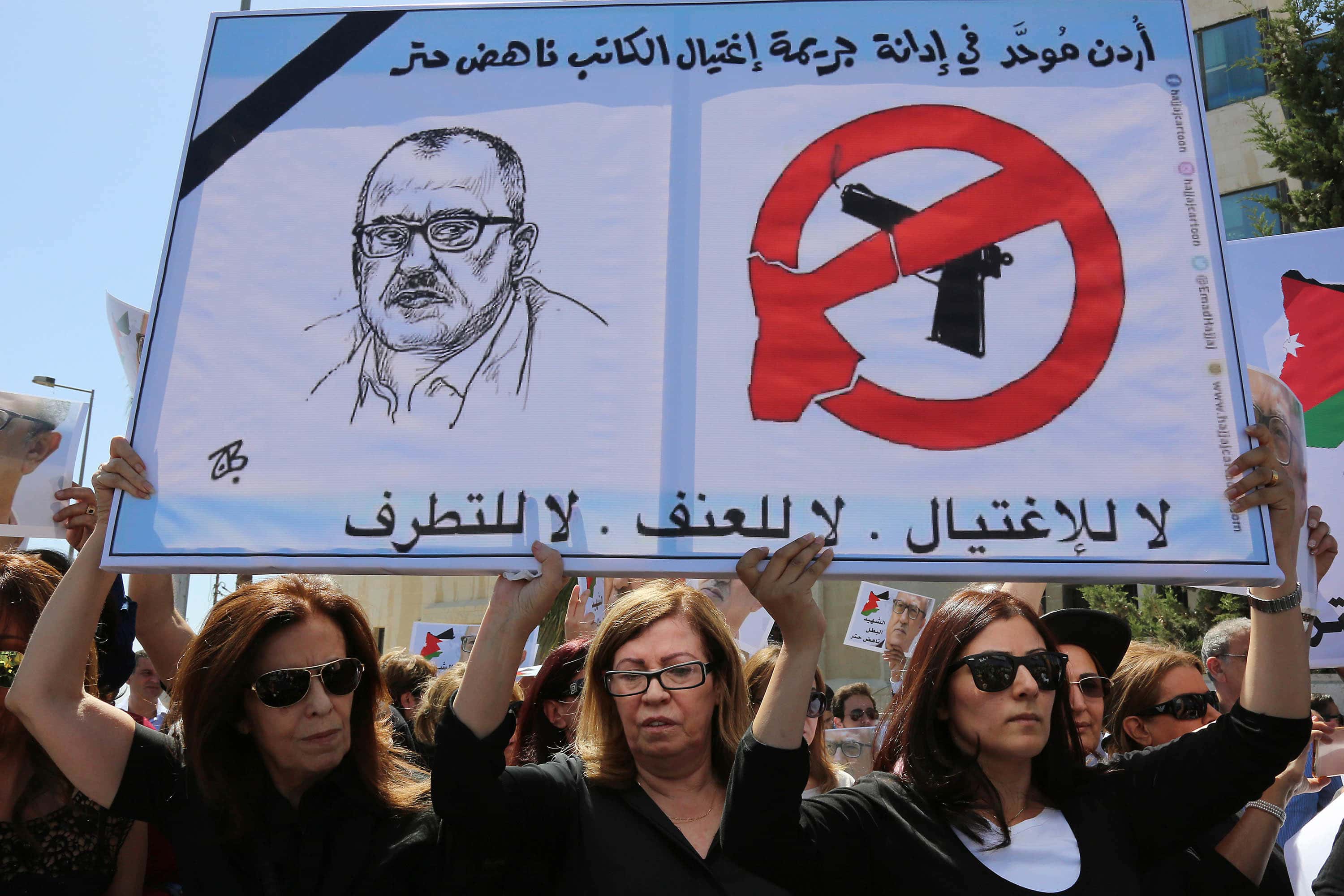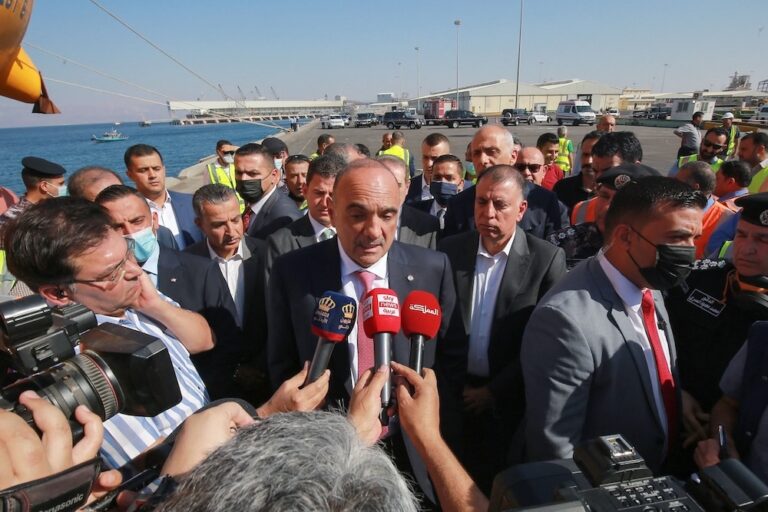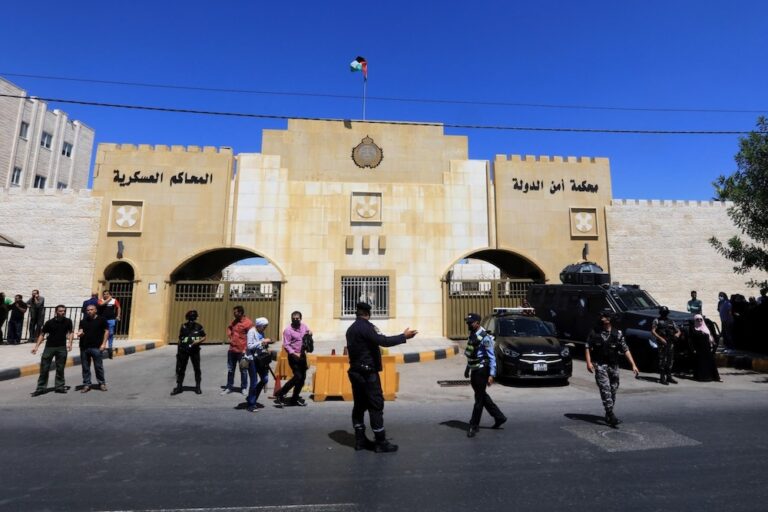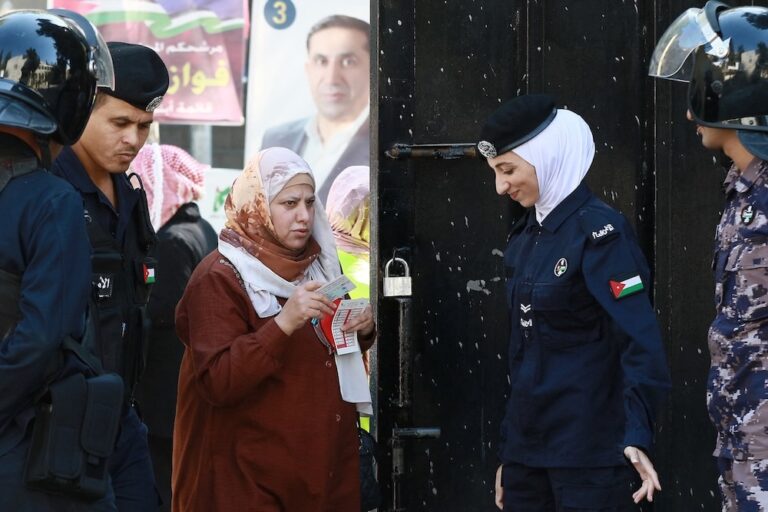The assassination of a controversial writer charged with "insulting Islam" over a cartoon he shared on Facebook hints at much deeper issues than a lone-wolf shooter.
On 25 September 2016, as writer Nahed Hattar, flanked by friends and family members, made his way up the steps leading to the Jordanian Palace of Justice, three gunshots pierced his body, fatally wounding him. The killer, a former imam at a local mosque, later reported his act was motivated by anger over a cartoon Hattar had shared on Facebook weeks earlier.
When the State leads by example
The aforementioned cartoon, which depicts a bearded man, smoking and in bed with two women, asking God to bring him wine and cashews, was also the basis of Hattar’s arrest and detainment on the orders of Jordanian Prime Minister Hani Al-Mulqi in August. After facing a huge public backlash over sharing the cartoon, Hattar was charged with “insulting God and Islam” before being released on bail in early September.
The day of his assassination was also the day Hattar’s trial was due to begin, a trial that has been denounced by local and regional civil society groups, online news outlets, and international press freedom organisations alike.
Writer Nahed Hattar had long been a polarizing and controversial figure in the Jordanian political scene. He had previously expressed views critical of Jordan’s royal family, supportive of Bashar Al-Assad’s dictatorial regime, and favourable towards exclusionist policies. Hattar was Christian-born but described himself as a ‘non-believer’. In the past, he had been charged with insulting the king, banned from writing for or appearing in Jordanian media outlets, and was imprisoned several times for his political activism. It is doubly unfortunate that what caused the permanent annihilation of Hattar’s voice has not been anger over his own writings. He was brutally and publicly shot down for something he didn’t even claim ownership of; a cartoon he had later deleted insisting he had not meant to “insult Islam” but to expose how the radical extremist group Daesh “envisions God and heaven”.
Jordan is still reeling from the shock of such a brazen terrorist act, but if the crescendo in public death threats and incitement to murder that characterized the weeks preceding his trial were indicative of anything, it’s that his life was in grave danger, and the State’s initial criminalizing of his act, its imposition of a gag order on his case, and its subsequent failure to provide physical protection, were important factors in the climate that led to his death.
“We hold the Prime Minister, the Minister of the Interior and the security services responsible for Nahed’s killing,” the journalist’s brother told local media. “Nahed Hattar was killed in cold blood in front of the highest institution of justice in Jordan.” Hattar’s family also announced that it had reached out to the government multiple times asking for the death threats to be taken seriously.
Hattar’s family is not alone in its belief that the government is responsible for his death. Statements released by IFEX members, including the International Federation of Journalists (IFJ), the Committee to Protect Journalists (CPJ), PEN international, and the Arabic Network for Human Rights Information (ANHRI) have linked the murder to the State’s repressive climate for freedom of expression. As of the day of his murder, more than 900 Jordanian individuals have signed a statement declaring that they also hold the government responsible.
An enabling environment
“While it was the killer who took that gun out from a plastic bag he was carrying, and while it was he who pulled its trigger three times, there has been a whole supporting environment that provided him the motive, motivation, and the opportunity to do it. And if not him – then someone else,” said prominent Jordanian commentator Naseem Tarawneh. In a blog post published to The Black Iris, Tarawneh weighed in on why addressing the enabling environment for such an incident is crucial.
Hattar’s assassination should serve as a wake-up call for Jordan’s government and its people. Nominal, superficial reform has only served to lull the country into a false sense of security. Meanwhile, with the rise of extremist militant groups like Daesh and in the shadows of a government that penalizes its critics, as well as economic stagnation, and an array of other factors, extremist thought and intolerance for differing opinions grows and festers. A disconcertingly great number of Jordanians took to social media to call for Hattar’s death before the fact and to celebrate it in the aftermath. Many proved to be uninformed about the details of his case, chiefly in their mistaken belief that Hattar created the cartoon.
The government has once again imposed a gag order; this time on news of his assassination, further fueling misinformation and driving crucial and needed national debate underground.
“Am I next?”
Many of those who rose to condemn both Hattar’s prosecution and his eventual murder, both inside Jordan and elsewhere in the region, disagreed with some of his more controversial opinions and stances. But as Tarawneh explained in his piece, “this is bigger than Nahed Hattar”.
“Whether you’re a moderate or liberal Muslim, a secularist, an atheist, a pluralist or progressive – you too are a minority, and you too are faced with this reality.”
In the aftermath of the murder, Jordanians have proven that they are acutely aware of this reality. Popular Jordanian comedian Ahmad Massad, currently being investigated on charges of contempt of religion, posted to Facebook in Arabic on the day Hattar was killed, wondering whether he will be next. “Will I be killed even if I am innocent of [the charge],” he wrote. “Has the day of judgement been cancelled?! Do the people convict you now?”
Poet Jumana Mustafa, a self-declared secularist, penned a poignant post on Facebook that began with the declaration, “I am a secularist. Do you want to kill me?”
“We are many,” she stated, “and we do not sport horns on our heads, and we do not grow scales on our skin. We are many, and we live amongst you.”
Jordanians were not the only ones who felt the far-reaching chill of Hattar’s assassination. Moroccan cartoonist Khalid Gueddar, who shared the cartoon in solidarity with Hattar and to spread the news, has been receiving death threats himself and has asked his own government for protection in the face of them. Will the Moroccan government rise to the occasion?
Nahed Hattar’s killer was captured on site and charged with premeditated murder. If convicted, he could face the death sentence.



